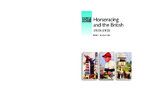Horseracing and the British 1919-39
Abstract
From the prize-winning author of Flat Racing and British Society 1780-1914, this is the first book to provide a detailed consideration of the history of racing in British culture and society and to explore the cultural world of racing during the inter-war years. It breaks new ground by showing how racing's pleasures were enjoyed even by the supposedly respectable middle classes, and gave some working-class groups hope and consolation during economically difficult times. Regular attendance and increased spending on betting were found across class and generation, and women too were keen participants. Enjoyed by the Royal Family and controlled by the Jockey Club and National Hunt Committee, racing's visible emphasis on rank and status helped defend hierarchy and gentlemanly amateurism, and provided support for more conservative British attitudes. The mass media provided a cumulative cultural validation of racing, helping define national and regional identity, and encouraging the affluent consumption of sporting experience and frank enjoyment of betting. The broader cultural approach of the first half of the book is followed by an exploration of the internal culture of racing itself: the racecourse and course life, trainers and jockeys, owners and breeders. Written with flair and making full use of thorough research and original sources, Horseracing and the British 1919-39 is an important text for undergraduate courses on the history of modern British society, sport, and cultural studies, and will be welcomed by racing enthusiasts everywhere.
Keywords
horse; jockey; equestrian; racing; Bookmaker; Gambling; London; Middle class; Working classDOI
10.7765/9781526120632ISBN
9781526120632OCN
60638817Publisher
Manchester University PressPublisher website
https://manchesteruniversitypress.co.uk/Publication date and place
2003Classification
Horse racing


 Download
Download